Henry Padovani - Interview
by Lisa Torem
published: 23 / 8 / 2016
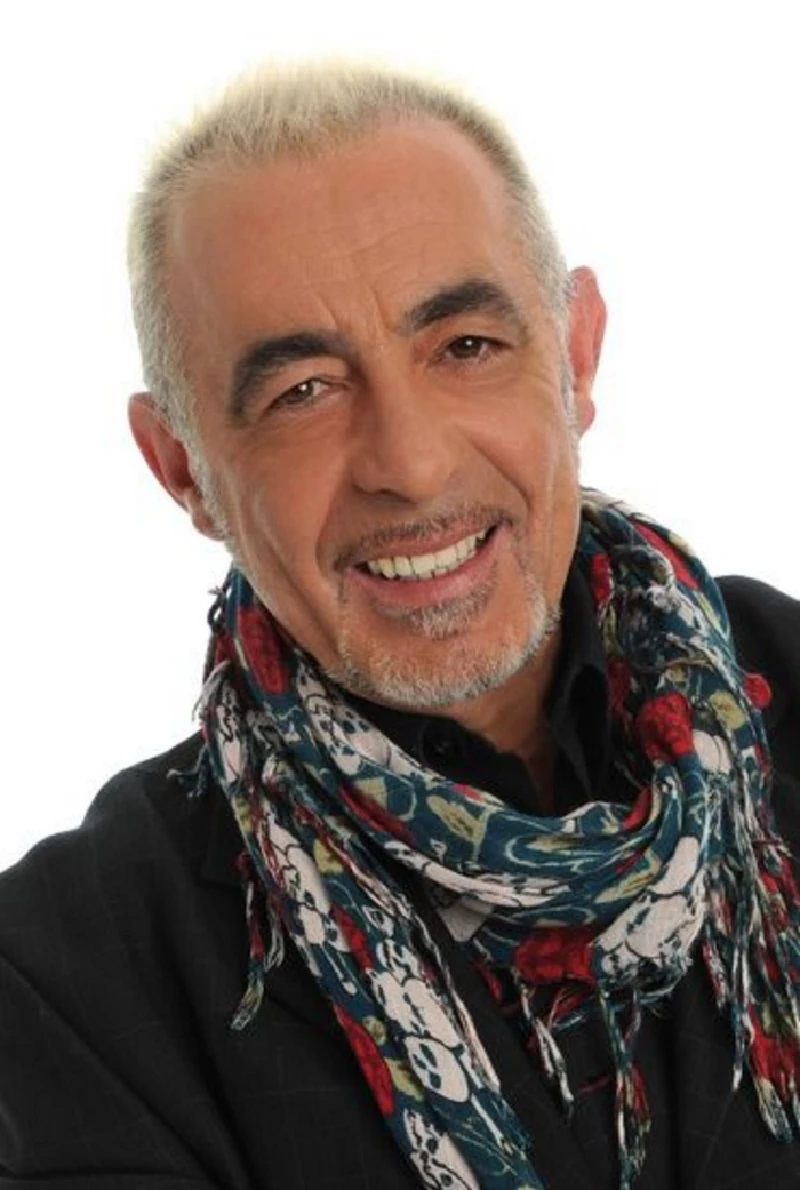
intro
Corsican guitarist/songwriter Henry Padovani recently released his long-awaited solo debut album, ‘I Love Today’. He talks about key studio moments, his career history with The Police and more with Lisa Torem
Henry Padovani founded and was the first guitarist with Sting and Stewart Copeland of The Police. He then performed as second guitarist with Andy Summers for a spell, before his career took off in a number of new directions. As guitarist with Wayne County and the Electric Chairs, he increased his punk following. He even veered into management with Italian act Zucchero and acted as talent scout for the French version of 'The X Factor'. Perhaps one of his most groundbreaking projects has been with The Flying Padovanis, where his love of instrumental guitar has been realised in multiple studio releases. Henry was born and raised in Corsica and has been heavily influenced by his linguistic and musical culture. On his new album 'I Love Today', he sings in both his native French and English. He sings a few of the classics but in his unarguably unique way. It was a long wait for this album, but it is so full of fresh ideas, raw guitar and unorthodox phrasings that the wait was worth every agonizing second. In this Pennyblackmusic interview, Henry speaks candidly to Lisa Torem about his early influences, the creation of ‘I Love Today’ and how playing with the likes of The Police influenced his future career choices. PB: In 1976, you formed The Police with Stewart Copeland and Sting. For a while, you and Andy Summers both played electric guitar before you were dismissed. Nevertheless, you performed in 2007 together in a successful reunion concert with Andy, Stewart Copeland and Sting. Is that something you would do again? HP: Of course, in a flash. The story of The Police is unfortunately ridden with the constant rivalry between Stewart and Sting and it feels that it will never stop. I actually managed to get those two together in 2006 to record with me, one of my songs ‘Welcome Home’ and realised they hadn’t spoken to each other for about five years. Right after that, Sting told me he was going to reform the Police, so I felt I did achieve something and when we started playing together at the Stade de France it felt like a celebration. We felt really together, all of us, including Andy. Unfortunately, it didn’t last and in the end, I saw them argue again and again, so I’m not sure Sting will want to go through that again and again, but every time I see Sting, I ask him…ahaha… PB: Pete Townshend claims that he picked up the guitar because of Link Wray. Which guitarists or musicians in general can you say that about? HP: Well, Jimi Hendrix, of course, but it also scared me. When you start, you just cannot even understand what he was doing. And George Harrison also. That was easier and later came Link Wray. I didn’t know that anecdote about Pete Townshend, but I understand totally. Also, local guitar players in Corsica. They played with simplicity and had a lot of reverb. I liked that. PB: ’Storm the Gates of Heaven’ represents your debut as a songwriter. What was your process then and has it changed? HP: It was Wayne that encouraged me to write. Wayne got me into 60's garage music. He/she also gave me a Ventures album and that is when I added a Bigsby to my guitar. From then on, Wayne kept asking me for music as he was writing tons of lyrics, but the Bigsby changed my approach on guitar and I quickly formed the Flying Padovanis to write lots of instrumentals. I loved it. Confidence in writing lyrics came later. I was very shy at first, but Paul Slack and Chris Musto were very supportive and liked what I was writing. I never thought I could. PB: You formed the Flying Padovanis in 1980 and currently perform the band’s popular, instrumental music. Nonclassical instrumental music does not get as much radio play as vocal-based music. That said, are you getting veteran fans in the audience or young, curious fans? HP: I am not so sure. The band was, in fact, very hip. No one was doing that. We had people like Bono coming to check us out and Bruce Springsteen and Brian Seltzer, and he gave me a lot of confidence on guitar. I finally had my sound, which I think is the most important thing for a guitar player. And lots of people, all ages, were coming to see this crazy, Corsican guitar player. No effects. Guitar into an amp. Just loud! PB: You have played internationally. In which country are fans most receptive to instrumental compositions? For new fans, which album best represents the band’s best work? HP: I reckon it is Japan and also because The Ventures, America’s answer to The Shadows, were the biggest ever band over there. Bigger than the Beatles. Language can be a barrier, so instrumentals just get around that problem. But you still get the power of a rock and roll band. Last week I was in China, playing acoustic gigs—songs in French or English. I did, at some point, a Lightnin’ Hopkins inspired, fast blues instrumental. They went nuts! If there is an album of the Flying Padovanis to buy, it should be the ‘Three For Trouble’ on Diesel Records. It has everything that the band has ever recorded, including the first single, ‘Va Plus Haut’, which has vocals in French and that made it the single of the week in the 'NME'. PB: ‘Rock ‘n’ Roll of Corse’ is a documentary about your life by Lionel Guedj, which began with your touring days with The Police. If there were to be a sequel, which life events or epiphanies would have to be added? HP: Possibly the touring, which I have done since then. You see, the shooting started as I was just getting back into playing, after a break of twenty years, and then The Police reformed. Then the Flying Padovanis reformed and Lionel just managed to film The Flying Padovanis in Japan. But since then, I have been to Australia, New Zealand, Germany, Spain, Italy, Brazil, Argentina, Russia, China, etc., etc., etc., and I have been recording this new album. So, it’s been a lot of fun. PB: Fans have waited decades for your new album, ‘I Love Today’ and you’ve given them a lot to be grateful for. Let’s first talk about some of your interesting cover choices: ‘Long, Long, Long’ by George Harrison, ‘Into My Arms’ by Nick Drake and ‘Play with Fire’ by The Rolling Stones. Can you give us some insights into why these songs appealed to you and why you felt you could re-imagine them uniquely? HP: ‘Long, Long, Long’ always appealed to me for its chords sequence in a waltz scenario. Just magic. I used to be a huge fan of George Harrison. I had his poster over the turntables when I was a DJ in Corsica. I sported a moustache like him and long hair. People thought it was my own photo. Nick Cave, ‘Into My Arms’, just because it’s the best song ever (the other being, ‘The First Time Ever I Saw Your Face’). it’s just about people as human beings. That is the sort of song I wish I could write. It is so simple it does work. If I did write a song like that, I probably would not recognize how beautiful it is, being so simple (it’s the same with ‘The First Time Ever’, I probably thought it was too corny and yet…). I tried to do that when I wrote ‘I Love Today’. Simple. Keep it simple. It’s the same with ‘Play with Fire’. I always try to play songs in open G tuning and see if it can work. And I look around for new chord shapes to make it sound right. I change harmony sometimes. Open tuning forces you into different bass harmonies if you play other than blues. ‘Play with Fire’ came as a sequence for myself and I thought it sounded like a swampy blues version of ‘Play with Fire’, so I just went for it. It surprised (producer) Mark St. John, who immediately wanted to record it and add the Indian beat. And wind, and eerie atmosphere to it. PB: You also made an interesting choice when covering John Lennon’s ‘Jealous Guy’. The story goes that this was a very personal song written by Lennon about his feelings for Yoko Ono. You and Sasha Morgan arranged it as a duet. What gave you that idea? HP: Again it was Mark St. John. I am very supportive of Sasha Morgan. I’m just waiting for her to break as an artist. Every time she came to play in Paris, I always arranged to do duets with her. I always propose songs to her. This was Mark’s idea and I felt it was perfect because, as much as it was an apology from John to Yoko, I felt I should take it further and have the two protagonists get a chance to exchange their views. In a couple, it’s never one person’s fault. If you are two, the blame can always be shared. PB: You do a lovely version of Jacques Brel’s famous ‘Ne Me Quitte Pas’ (‘If You Go Away’) in your native French and in which you play evocative guitar. It’s quite different from the arrangement most of us know, but equally compelling. How many takes did you need to get it right? HP: It actually only took three takes. The point was to record simultaneously guitar and vocals. As a performance, that songs takes a lot out of you. The lyrics in French are a lot heavier than the English version. Every take was different whether it was guitar work or vocals. So, and as I could not probably keep doing it (as it killed me every time), we chose the best of the three. I somehow just did this very weird Arabic, classical guitar solo at the end of a chorus. It just came. We liked that and I think I cried while playing it. My throat was very dry. I probably thought about a million things and about my mother who passed away. PB: ‘I Love Today’ enjoyed the talents of Dick Taylor (The Pretty Things), Sam Brothers and, Mark St. John, on drums. Does this song describe your current state of mind? HP: Absolutely. Like a gypsy, I think that every day is a new beginning. I often feel I must be very naïve about life. I cherish my freedom and I do everything as if it were a new day or a last day. Am I right or wrong to feel this way? The past doesn’t interest me. My best concert will always be the next. It allows me to be a happy man. And I’ll worry about everything on my very last hour, but not now. There’s too much to do. I must make it first… PB: What are those curious sounds on ‘Skeleton Blues’? HP: You probably are referring to the percussion that sounds like a wooden rattle. We thought they sounded like bones rattling. The song is about skeletons mucking around. PB: Mark Bolan’s ‘Lean Love’ is embellished by another Pretty Things member, George Woosey, who plays slide guitar and then there is refreshing blues harp, courtesy of Lorenzo Moufflier. Did you work out the arrangement ideas separately or jointly? HP: We did that one separately. I usually play it alone. Mark St. John told me he got that together when George and Lorenzo were around in the studio. George Woosey is one of my heroes, a young one. The guy is a genius. And they both got it perfectly right. PB: ‘Rien De Rien’ was recorded by Edith Piaf and is one of several songs on the album that you perform with open tuning. Interestingly, you consider Edith’s version a blues song. Can you explain why? Also, the theme is about living life with no regrets. Does that describe you? HP: Oh, yeah. Again, I was playing around with open G tuning, I think it was Keith Richards who said, “No regrets” as he came out of court one day. That sums up rock ‘n’ roll. As does Keith. One could say it is easy for somebody who had a lucky life and a life of innocence to say that he has no regrets, but like everyone I took some bad turns in life, but they probably were done with a pure mind and It got me where I am today, so I will never regret anything. I will always try to turn it into something positive, So I fiddled with the harmony of the song and turned it into a blues, a sort of ‘I Got The Blues’ by The Rolling Stones. PB: Thank you and much success on ‘I Love Today’.
Band Links:-
http://www.henrypadovani.com/https://twitter.com/henrypadovani
https://www.youtube.com/user/henrypadovani
https://plus.google.com/+HenryPadovaniloveandrock
Picture Gallery:-
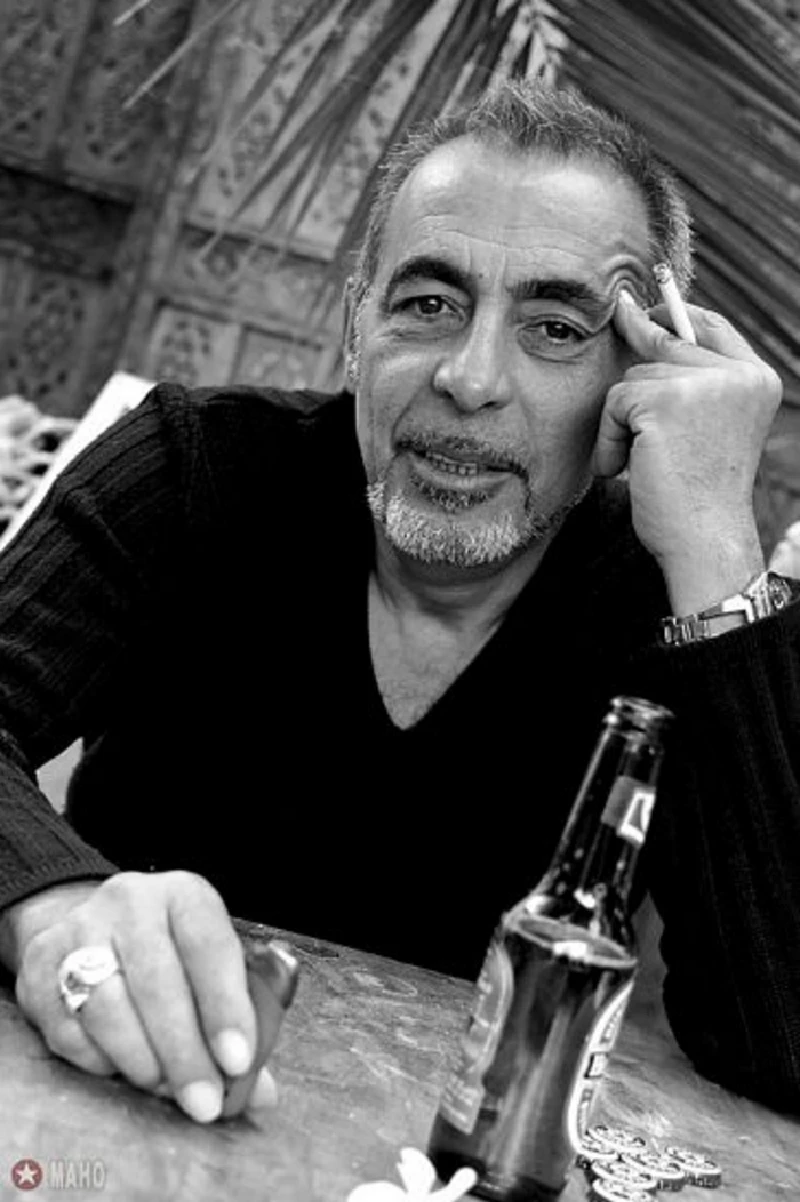
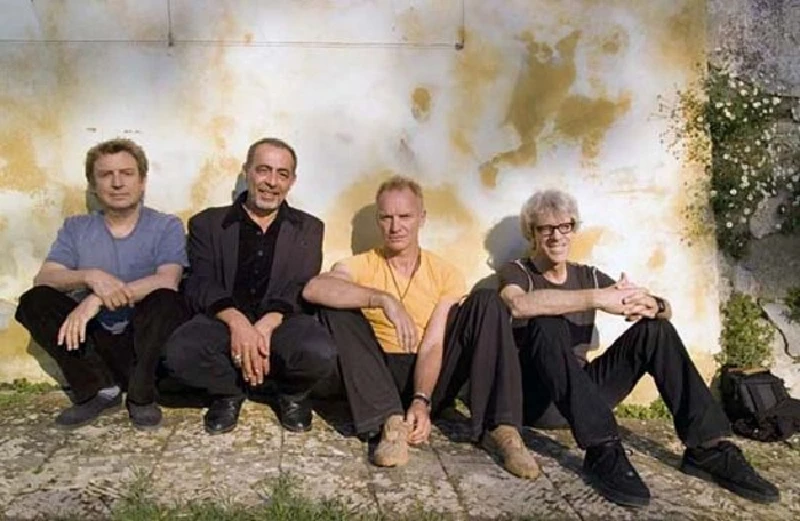
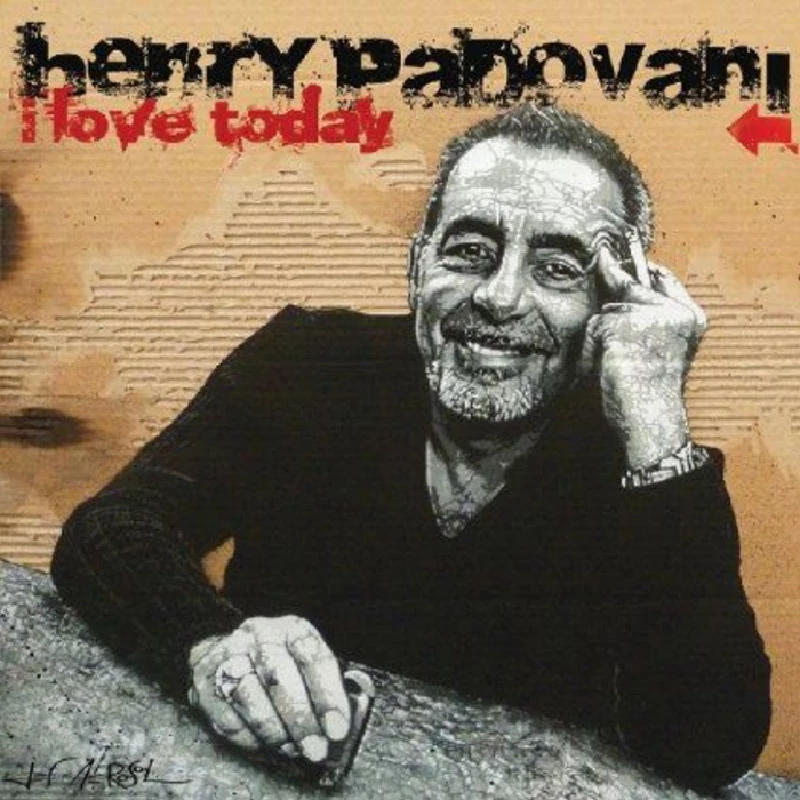
reviews |
|
I Love Today (2016) |
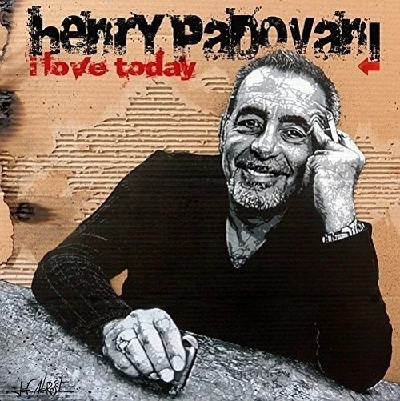
|
| Corsican singer/songwriter/guitarist Henry Padovani's debut album 'I Love Today' required a forty-year wait, but it was worth every moment |
most viewed articles
current edition
Spear Of Destiny - InterviewRobert Forster - Interview
Fiona Hutchings - Interview
When Rivers Meet - Waterfront, Norwich, 29/5/2025
Carl Ewens - David Bowie 1964 to 1982 On Track: Every Album, Every Song
Brian Wilson - Ten Songs That Made Me Love...
Pistol Daisys - Waterfront, Norwich, 29/5/2025
Gary Numan - Berserker
Deb Googe and Cara Tivey - Interview
Roberta Flack - 1937 - 2025
previous editions
Heavenly - P.U.N.K. Girl EPBoomtown Rats - Ten Songs That Made Me Love....
Dwina Gibb - Interview
Trudie Myerscough-Harris - Interview
Oasis - Oasis, Earl's Court, London, 1995
Sound - Interview with Bi Marshall Part 1
Susie Hug - Interview
Chuck Prophet - Ten Songs That Made Me Love...
Ray Humphries - Interview
Sukie Smith - Interview
most viewed reviews
current edition
Peter Doolan - I Am a Tree Rooted to the Spot and a Snake Moves Around Me,in a CircleGarbage - Let All That We Imagine Be The Light
Little Simz - Lotus
Suzanne Vega - Flying With Angels
John McKay - Sixes and #Sevens
Vultures - Liz Kershaw Session 16.06.88
Billy Nomates - Metalhorse
HAIM - I Quit
Vinny Peculiar - Things Too Long Left Unsaid
Morcheeba - Escape The Chaos
Pennyblackmusic Regular Contributors
Adrian Janes
Amanda J. Window
Andrew Twambley
Anthony Dhanendran
Benjamin Howarth
Cila Warncke
Daniel Cressey
Darren Aston
Dastardly
Dave Goodwin
Denzil Watson
Dominic B. Simpson
Eoghan Lyng
Fiona Hutchings
Harry Sherriff
Helen Tipping
Jamie Rowland
John Clarkson
Julie Cruickshank
Kimberly Bright
Lisa Torem
Maarten Schiethart